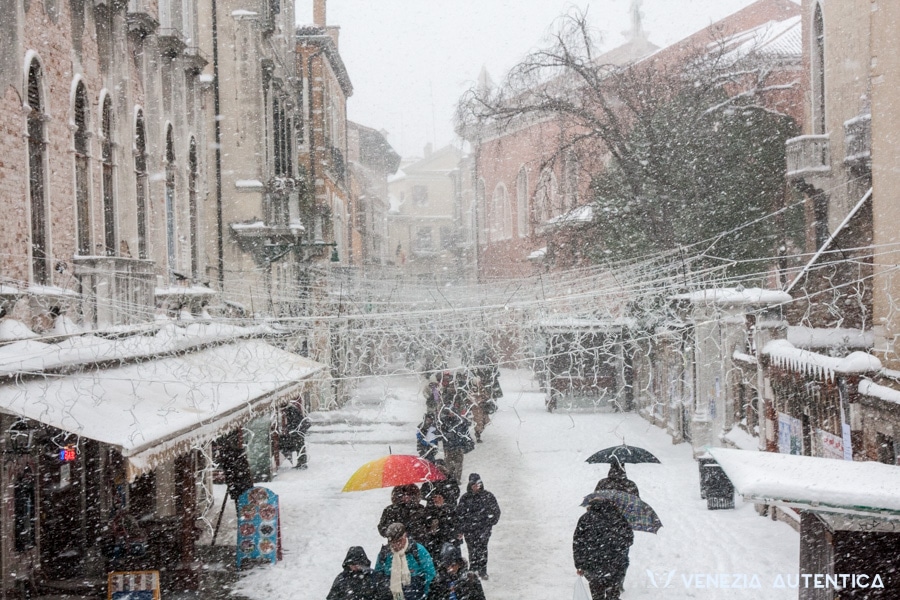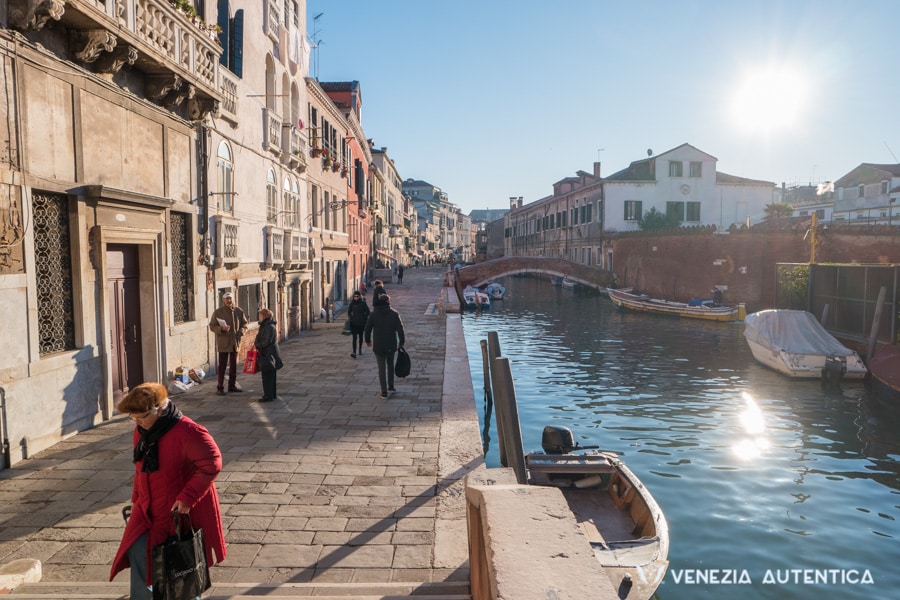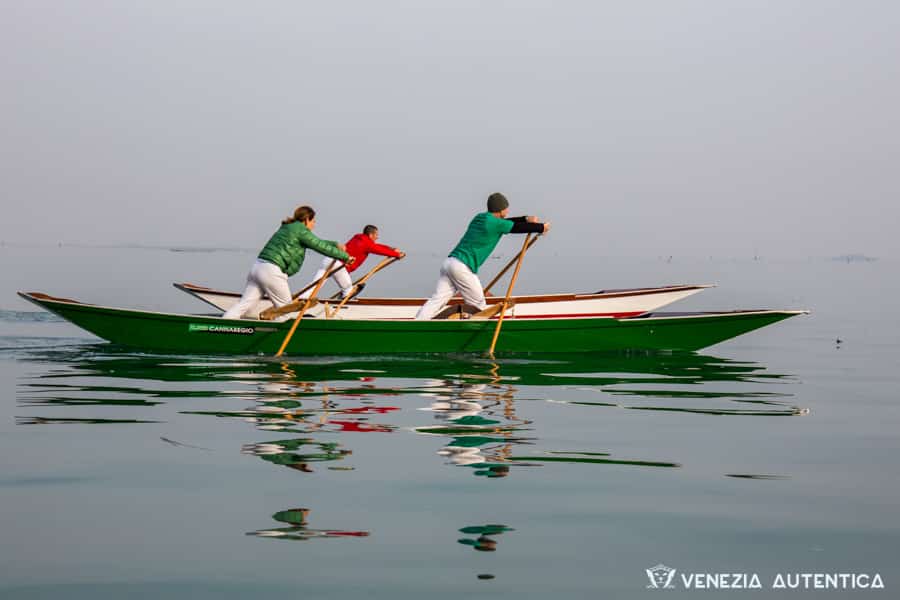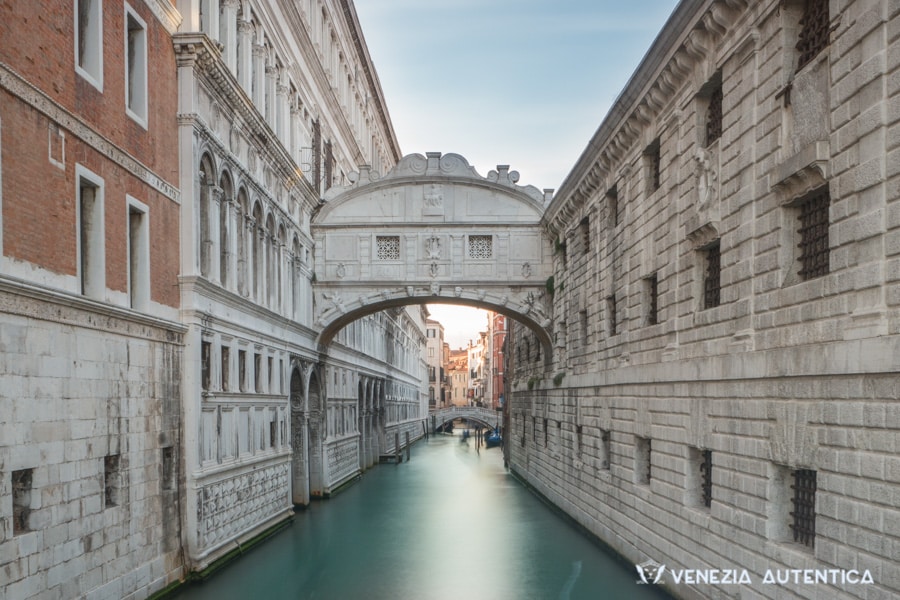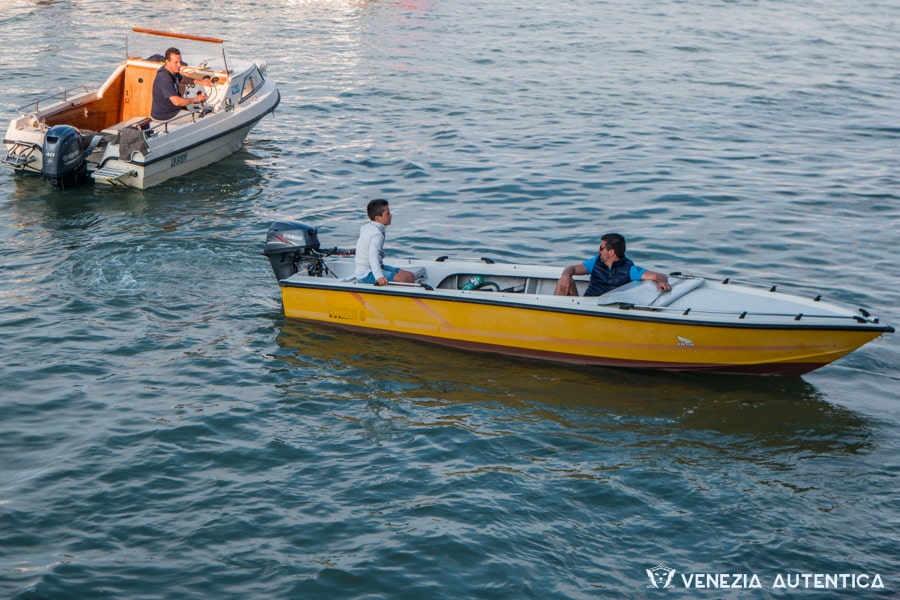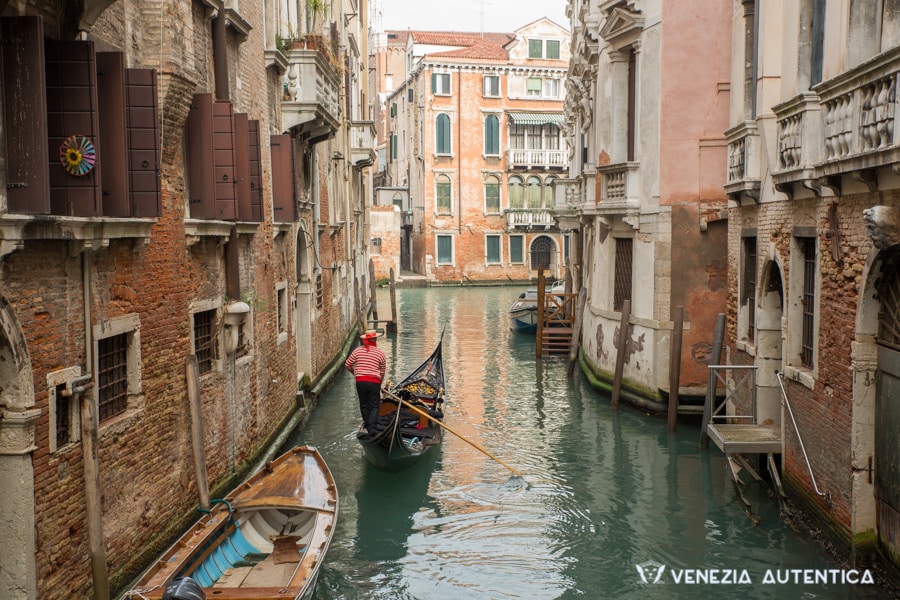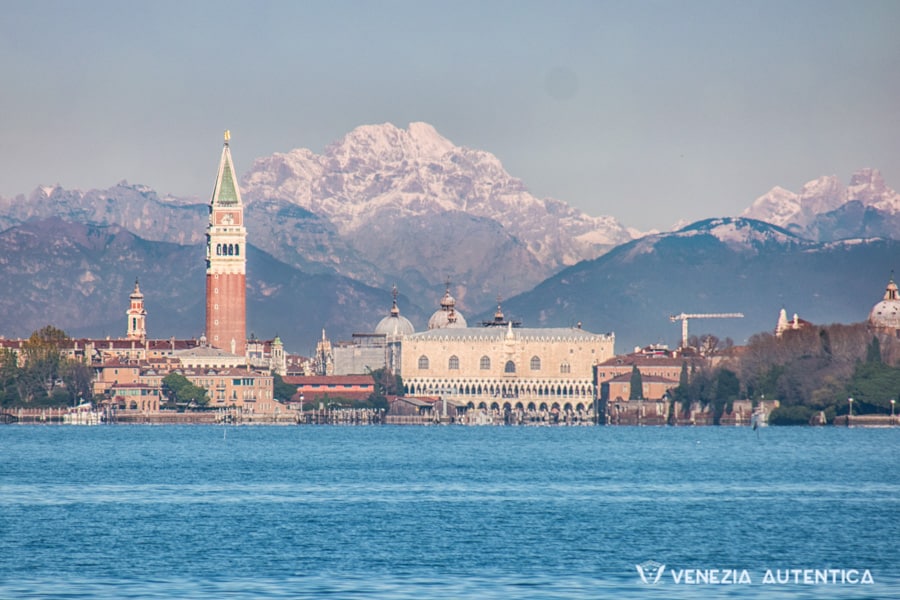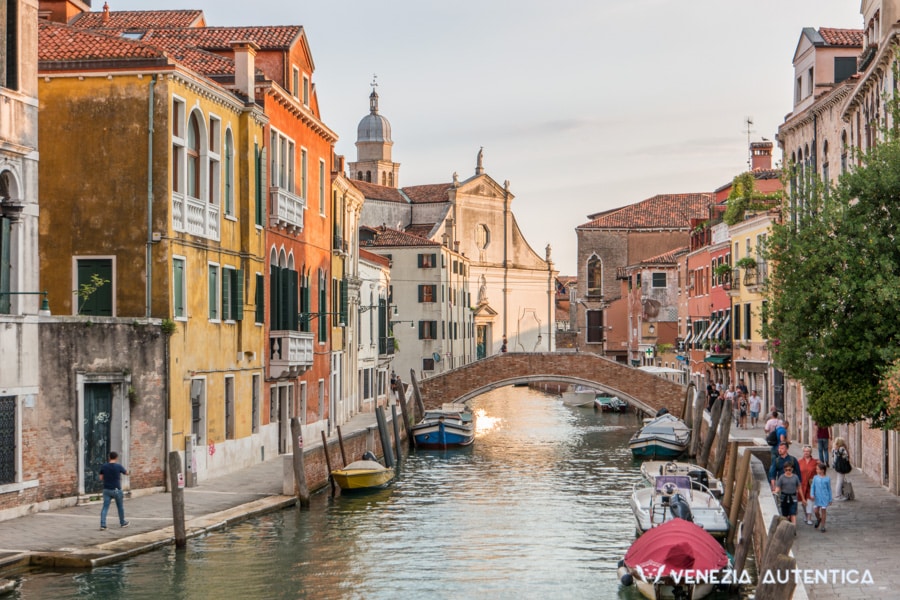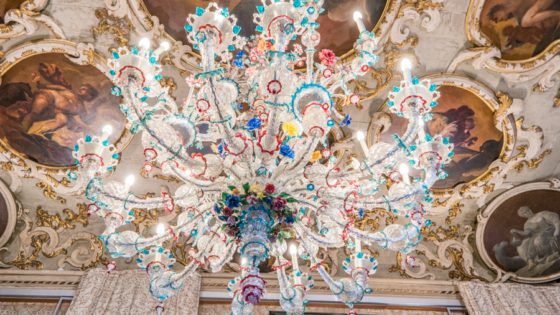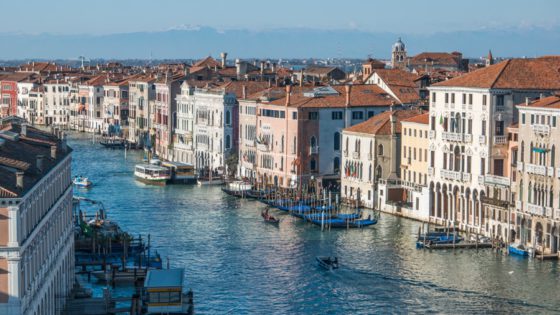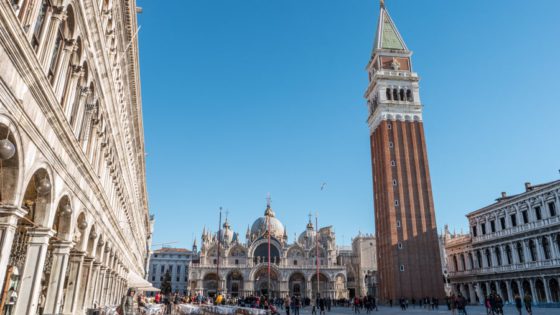Venice is special and it is easy to get confused
This article is a collection of the most popular questions that visitors have about Venice.
Find out below which questions about Venice visitors asked Venetians hundreds of times over the years!
This collection is not meant to make fun of people but rather to address the most common questions and false beliefs, and try to answer them.
We believe that all questions are legitimate and are they are a positive and natural consequence of travelling to foreign places.
So, get ready to learn 19 things about Venice, Italy, you might not know about!
In a hurry or looking for something specific? Use the interactive index below to jump to the category which interests you most
- Category #1: Surprising questions about Venice
- Category #2: Misconceptions about Venice
- Category #3: Common questions about Venice
Or you might be looking for
Are there people living in Venice?
Yes, the population living in Venice is just above 50.000 inhabitants as of March 2022.
When does Venice close?
Sometimes Venice feels like an open-air museum. However, Venice is a real city and has no opening or closing times.
There are business hours for offices, shops, and activities, but the city does not close as, for example, a theme park would.
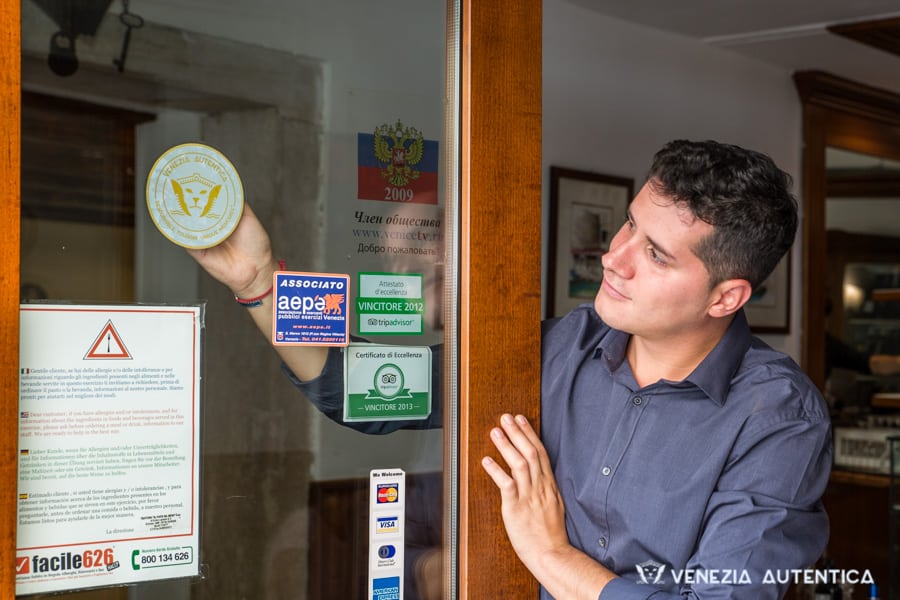
Unlock a discount at the best local businesses in Venice
Learn more about Venezia Autentica Friends' PassWhy are Venetians speaking Spanish?
Although to some it may sound like it, the language Venetians speak is not Spanish.
Venetians with their friends and family speak either Italian or the Venetian dialect. This dialect sometimes sounds more similar to Spanish than it does to Italian!
Indeed, in many instances, Venetian is surprisingly similar to Catalan, a language spoken by 9 million people on the east coast of Spain.
If you’re curious to know more, Wikipedia has an in-depth article on the Venetian Language.
Do you have schools/universities/hospitals/police/etc. in Venice?
Yes, Venice has schools, hospitals, police and firefighters stations, and everything you’d find in any other medium-sized city elsewhere.
What is interesting, however, is that those services that normally happen on cars in other cities happen on boats in Venice. Taxis, buses, police, firefighters, ambulances, etc. are all on boats.
Fun fact: Venice has only one nightclub, which is also much smaller than a typical nightclub in other cities.
How do you move around Venice when it's rainy/very cold/very hot/very late/you're in pain/sick/etc.?
Venetians walk.
Walking is at the very centre of the Venetian way of life. Since childhood, Venetians are used to walking all day, every day, at any age, in any weather condition.
No matter what, we go to school or to work on foot, we run back home on foot, we go to our football match on foot, we go to the doctor when we’re unwell on foot, we go to the supermarket and carry our heavy groceries bags on foot, and so on.
When does the next Acqua Alta Show take place?
This is one of the questions that, at times, surprise Venetians the most.
Although we do understand that a moderate Acqua Alta in Saint Mark’s might look spectacular to visitors, flooding in Venice are not a show. Floodings are a natural phenomenon that Venetians learned to live with.
When Acqua Alta is particularly high it can create problems. The main impact is economic, as it forces shops to close and can damage furniture, appliances, and goods.
It is incredibly rare for floodings in Venice to be life-threatening. We have an in-depth article that explains floodings in Venice and their impact.
In October of 2020, a gigantic dam system called M.O.S.E. was completed and intense floodings in Venice do no longer happen.
You can read our words and sense of relief in this CNN article on the MOSE and how it impacted our lives.
Misconceptions about Venice:
Now you know the answers to the most common questions about Venice… but there are a few more things worth talking about!
Indeed, there are several things about Venice that are misunderstood by visitors and we are happy to clarify.
Not every rowing boat in Venice is a gondola:
Gondolas are the most popular and the most common rowing boat in Venice, but not every rowing boat is a gondola.
Gondolas are a very specific type of boat that has a set shape and size. Most people know them as the black shaped boat rowed by gondoliers (but gondolas can also be coloured!).
Over the centuries Venetians have created many different types of boats, dozens of which are still in use today. A gondola is only one type of Venetian rowing boat.
Not every Venetian boat is a gondola, just like not every car is a Cadillac.
Kissing in front of the ``Bridge of Sighs``:
This bridge of sighs connects the trial rooms in the Doge Palace to the Venetian prisons.
At the time of the ancient Republic of Venice, the Serenissima, people sentenced to jail had to cross the Bridge of Sighs and would often die in prison soon after.
Therefore, the “sighs” the Bridge of Sighs refers to are of despair and death.
You might now understand why Venetians are puzzled when visitors chose to stand in front of it to kiss and take selfies with their loved ones.
Technically, it is not very different from kissing while looking at the Green Mile in a penitentiary.
Of all the beautiful and romantic places in Venice, is it really the best location for kisses, love declarations, and even proposals?
The sighs the Bridge of Sighs refers to are surely not those we all long for in our romantic relationships!
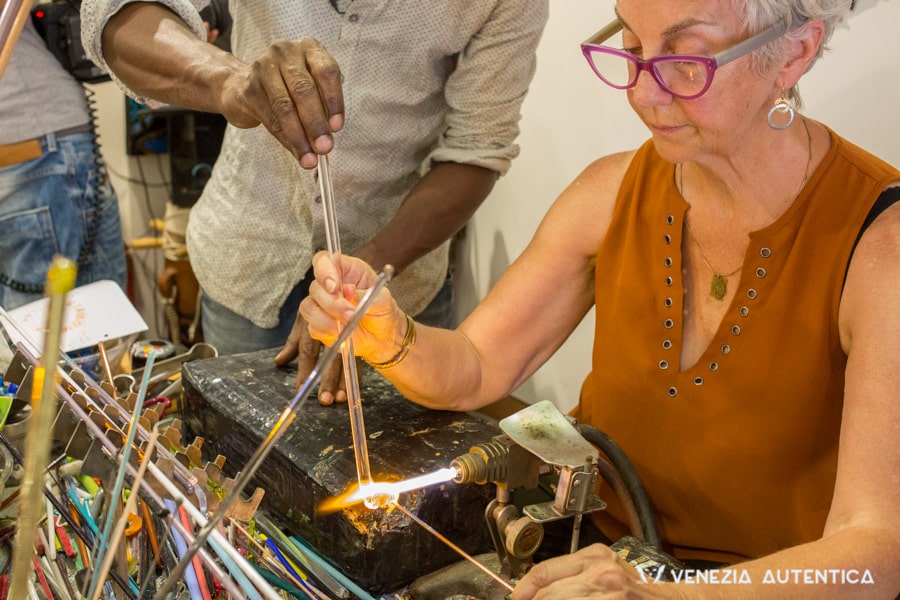
Book an authentic experience in Venice
See all experiencesThe ocean around Venice? The Venetian Lagoon is nothing like that
Often visitors refer to the water surrounding Venice as “the sea” or “the ocean”.
Venice, however, is located in a shallow lagoon. This lagoon, called the Venetian Lagoon, is a big area of 550 square km and an average depth of just 1,2 meters.
As such the depth of the waters surrounding Venice is closer to that of a puddle, rather than the depth of the sea or the ocean!
Venetians as ``background actors``, in a city with no private spaces:
Most readers won’t believe it, but… but sometimes Venetians have the impression that some visitors see them as background actors.
People rowing in the canals or listening to music in their motorboats are not parading for tourists and their boats are not for anyone to step in. Similarly, a door on a courtyard that happens not to be fully closed is not an invitation to enter and explore the private space of others.
Venice is so different and so unique that, at times, some visitors end up being either unaware or a bit too curious and annoy locals.
Acqua Alta is not a consequence of rain:
Acqua Alta is a high tide that slowly rises, covers parts of Venice for a few hours, and then slowly disappears.
The intensity of this phenomenon is the result of three different factors:
- The astronomical tide
- The intensity and the direction of wind
- Atmospheric pressure.
The contribution of rain to acqua alta is extremely marginal. Indeed, floodings in Venice can occur on a beautiful sunny day with no rain.
To thank us, many call us ``fat``!
“Grazie”, the Italian word for “thank you”, is pronounced “GRAHT-SEE-YEH”.
Most English speakers, however, say “graht-see” which sound like the Italian word “grassi”, fat [“grassi”, is the plural form of “grasso”, fat].
This mistake doesn’t happen because the word is difficult but, instead, because many believe that “graht-see” is the correct pronunciation.
Now, you can start to “thank” people instead of telling them they are fat.
Want more tips, tools and stories from Venice, Italy?
We're on a mission to make it easy and fun to discover and support the authentic Venice. Try our email and see for yourself!
Common questions about Venice:
How deep are the canals in Venice?
The depth of the canals varies between canals, and also depends on the height of the tide and the state of maintenance of the canal (if the canals have recently been dredged up or not). The average depth of the vast majority of the canals is between 1,5 and 2 meters. The Canal Grande has an average depth of 5m. The Canale della Giudecca has a depth between 12m and 17m. The deepest and widest of the 3 channels connecting the lagoon to the Adriatic sea, has a maximum depth of 21.5m
How old is Venice?
The first settlements and buildings in the lagoon date back to the V century C.E., but it was in 810 C.E. that the economic and political power was definitely moved to the island of Rivo Alto, later on, known as Rialto, and more buildings started being built creating the first Venice. In 1200 years of existence, the city and its buildings changed many times over the centuries to adapt to new needs and fashion. Venice as a city is over 1200 years old; the buildings that can still be seen today are up to 800 years old.
How do you usually move around Venice?
Most of the time, Venetians prefer to move on foot. Moving on foot is the fastest and most efficient mean of transportation in Venice… if you know how to get to your destination of course! Most Venetians use public transportation when necessary, as when water must be crossed. Rowing boats are mainly used for sport or for the pleasure of rowing itself, motorboats are mainly used for transportation of goods and during days off for enjoying the lagoon.
Does every Venetian have a boat?
No, there are many families who do not have a boat. Taking a boat is a pleasurable way to enjoy the warmer months, but is not essential to living in Venice. If needed, the public transportation system in town works extremely well (apart from being overcrowded) and connects Venice to all the major islands of the lagoon 24/7.
Do Venetians have a driver’s license?
Depends on what for… many Venetians have a car driving license, but the percentage is indeed less high than in other cities. The majority of the Venetians do NOT have a boat driving license because it’s required only if the motor exceeds 40HP. Speed limits in Venice are very low (5/11/20 km/h) and most boats used in Venice for leisure are light, therefore not requiring powerful engines. Does it mean that it’s a good idea for anyone to rent a boat and drive in Venice? Absolutely not! Venetians who do not have a license, still know the rules of navigation and have learned to drive in Venice since childhood.
Do you know Donna Leon/Have you read the commissario Brunetti?
Donna Leon has chosen not to be translated and published in Italian, therefore Venetians do not know her. She made this choice in order not to be known amongst Venetians, and she succeeded in that. Venetians learned about her existence and that of the “Commissario” only through the questions of her many readers all around the world that came to Venice asking about her and her works!
That’s it! Now you know much more about Venice and the Venetian lifestyle. Do you have any doubts? Are there some questions about Venice you’d like us to answer? Don’t be shy, just ask us!
Now that you know 19 things about Venice that, maybe, you didn’t know about you might want to find out even more about this unique city. To do so, and to make a positive impact on your next visit, make sure to check out the resources below:
I'm visiting Venice. Why should I follow your recommendations?
The way you visit Venice has an impact both on the quality of your experience and on Venice itself. Chilling, exploring, shopping, eating and drinking where the locals do, can make a huge impact both on the memories you bring home and on the local economy and community.
Home >> Visiting Venice >> Tips and Inspiration >> You’re Here
Tips and Inspiration to experience Venice
More in Visiting Venice

